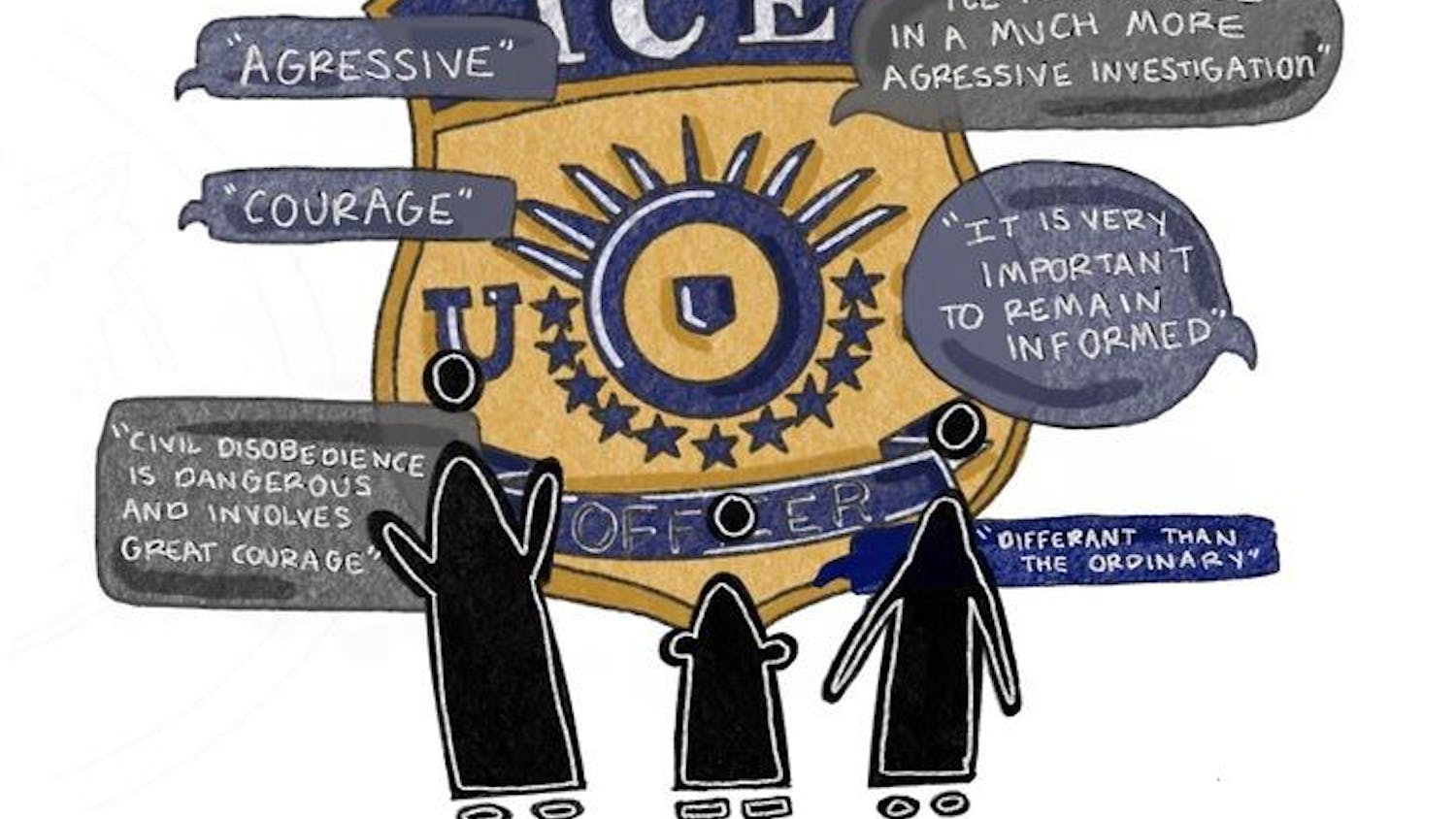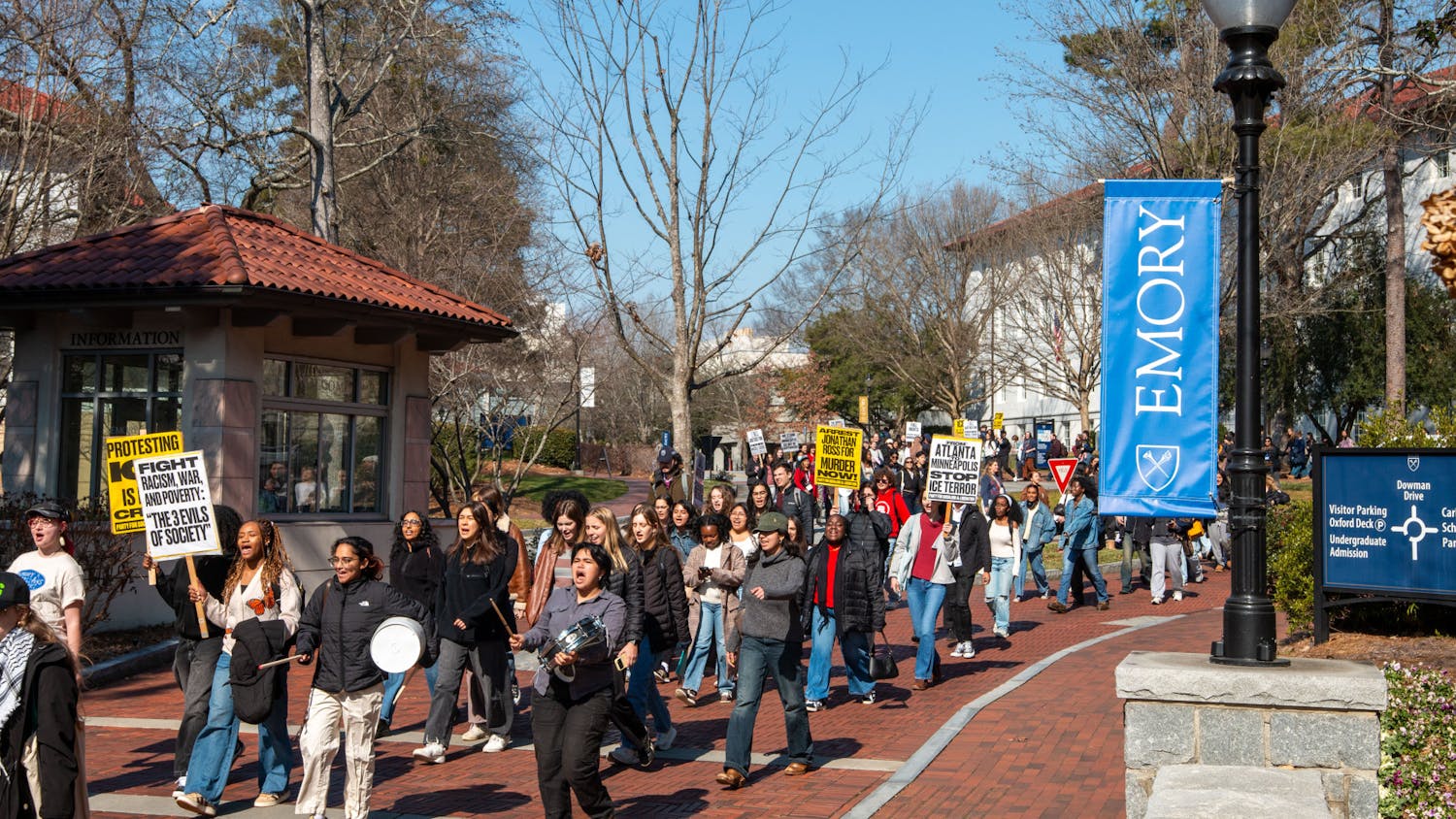
Former U.S. President Jimmy Carter reiterated his longstanding support for international human rights by stating that the condition of human rights is deteriorating, and that women and minorities are facing discrimination more under the new presidential administration.
The April 6 lecture addressed an audience of more than 1,000 people in the Glenn Memorial Church as part of the Law School’s Centennial David J. Bederman Lecture.
Throughout his speech, the University Distinguished Professor called for people — especially those who do not experience injustice — to transcend their comfort zones and fight for equal rights. Carter urged attendees to learn from history: during the civil rights era, a significant number of white males did not acknowledge the abuses of segregation and female disenfranchisement because they were not directly suffering from the status quo. That ignorance, he said, should not repeat itself.
The former president implored Emory students to “do what you can to end violations,” such as those happening at universities that often fail to aid rape victims properly.
“Most college administrators are very reluctant to punish boys who rape, or otherwise sexually abuse girls,” Carter said, adding that this was especially important given President Donald J. Trump’s past interactions with women and the allegations of sexual harassment against Fox News anchor Bill O’Reilly.
Carter repeatedly expressed disapproval of Trump’s actions, and criticized Trump’s policies, including his perceived negligence of human rights following the recent missile strike order on Syria.
“I don’t see any glimmer of hope within the administration,” the Emory University Distinguished Professor said. “But I hope that the Black Lives Matter epic will be continued and enhanced.”
Carter added that the Black Lives Matter movement and progress toward racial equality will most likely suffer because the Trump administration delegates human rights to the backburner.
Carter also pointed to the state of human rights in Emory’s backyard. Atlanta’s airport is one of the biggest harbors nationally for sex trafficking — modern slavery, according to Carter — and the majority of victims forced into the sex trade are women of color.
In light of all the human rights violations occurring, the former president said he could not find the words to end his discussion on an optimistic note.
Matthew Ady (17L) said that Carter’s pessimistic conclusion did not sit well with him.
“It’s like throwing your hat in ... the place is on fire so let’s just let it burn,” Ady said. “I think that’s probably uncharacteristic of President Carter in general, and not a good way to approach human rights.”
Dayany Florentino (17L) praised Carter’s eloquent speaking style, which he said made difficult and uncomfortable topics comprehensible.
“Although he has been a president, and his experiences can seem so unrelatable, he makes them so easy and you can really get inspired by what he says and shares about his experiences,” Florentino said.
Professor of Judaic Studies David Blumenthal praised Carter for speaking on human rights.
“He made himself as president and renewed that today as an outspoken advocate of human rights,” Blumenthal said, adding that he would have liked to see Carter discuss more how “human rights and religion go together, as [Carter] himself is a very serious Christian.”
In 2002, Carter was awarded the Nobel Peace Prize "for his decades of untiring effort to find peaceful solutions to international conflicts, to advance democracy and human rights, and to promote economic and social development,” according to the Nobel Prize website.
Carter Addresses Human Rights Under Trump Administration
Former U.S. President Jimmy Carter advocates for equal representation among women and minorities April 6 at Glenn Memorial Church./Courtesy of Emory Photo







